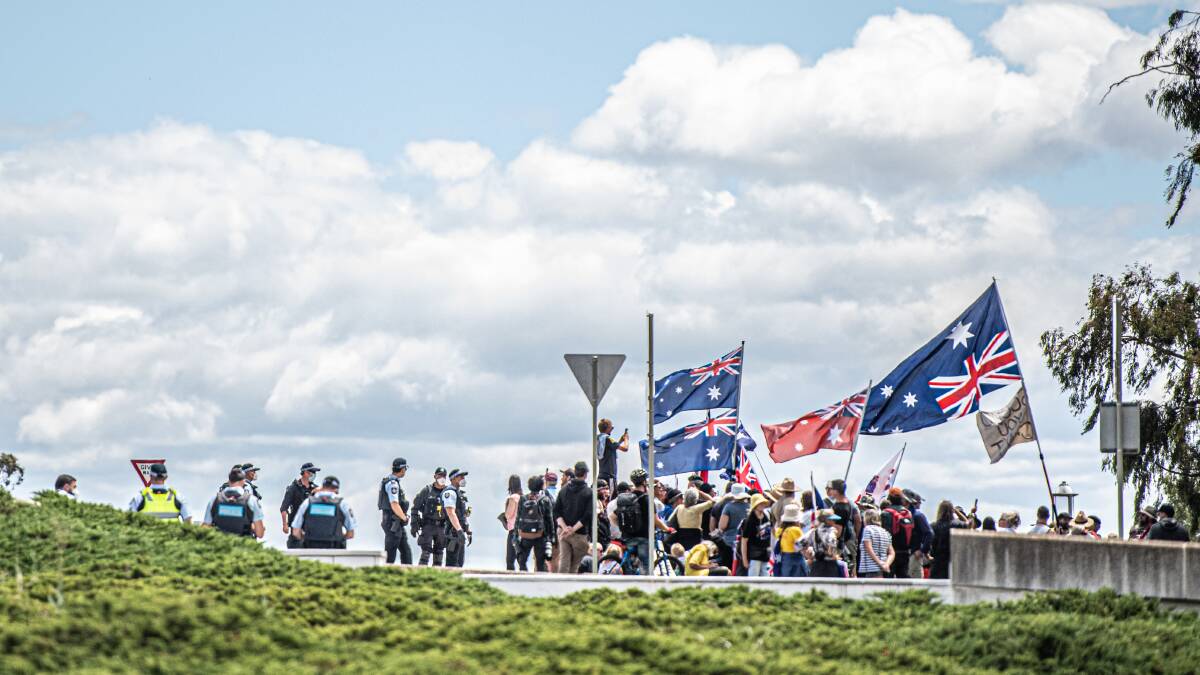
Incidents and slurs against Jewish people have risen more than 40 per cent in the past two years with conspiracies driven by COVID-19 restrictions contributing to the cause.
Subscribe now for unlimited access.
$0/
(min cost $0)
or signup to continue reading
The Executive Council of Australian Jewry, in its latest annual report on antisemitism, revealed there had been 478 incidents over the 12 months to October last year.
The figure represents a more than doubling of incidents over the decade since 2012.
Australia's domestic spy agency, Australian Security Intelligence Organisation, has previously warned social media "echo chambers" were further fuelling radical and extremist ideologies.
The report showed the majority of antisemitic incidents recorded by the peak body were verbal abuse, graffiti and posters or stickers with hateful messages.
There had also been five instances of physical assault recorded and 11 cases of anti-Jewish vandalism.
The council's research director Julie Nathan said the data was just the "tip of the iceberg" with a number of cases going unreported.
While physical assaults and messages were down on the previous reporting year, antisemitic posters, stickers and graffiti rose sharply.
READ MORE:
- Radical online 'echo chamber' fuelling anti-vax conspiracies: ASIO's Mike Burgess
- Online right-wing extremists increased activity in pandemic: NSW Crime Commission
- 'Ideologically-motivated' extremism on rise for ASIO: Mike Burgess
- OPINION: Nazi influence did not end with Holocaust. We need to be vigilant
Ms Nathan attributes this to COVID-19 restrictions and a surge in anti-vaccine and anti-lockdown sentiments.
"Firstly, the COVID-19 regulations which produced mass street protests, particularly in Victoria, and the antisemitic conspiracy theories associated with the anti-vaxxer, anti-lockdown camp, resulted in large numbers of antisemitic placards at protests and antisemitic stickers on the streets," she said.
"Secondly, there was an increase in neo-Nazi activity, propagating antisemitic propaganda material in the form of posters, stickers and the like."
ASIO head Mike Burgess last year warned minors now represented 15 per cent of the agency's case load compared to the two-to-three per cent of years earlier.
The top spy's assessment revealed young radicalised violent extremists, such as neo-Nazis, were now targeting and recruiting lonely peers to their causes both online and in school settings.
Ms Nathan said more consistent education was key to stamping out some of the root causes.
"We need education not only about World War II and the Holocaust but also about contemporary antisemitism and the multiple forms that it takes, as well as anti-Indigenous, anti-African, anti-Asian (east and south), anti-Muslim, anti-Hindu and anti-LGBTIQA+ animosity," Ms Nathan said.
"These are commonly-held prejudices in Australia and we can only begin to address them when students learn about the specifics of each of them and why they are false and harmful to all of us."


